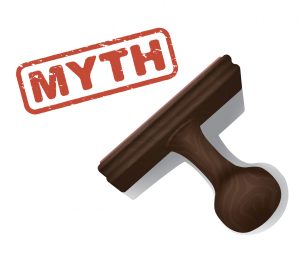Updated as of May 19, 2020.
Mythbuster: Can someone with food allergies be cured of their allergy when they are given an epinephrine auto-injector (e.g., EpiPen®, ALLERJECT®)?
 No. This myth exists in the wider community who are not personally impacted by food allergies. To educate that audience, we want to bust this myth by breaking it down further.
No. This myth exists in the wider community who are not personally impacted by food allergies. To educate that audience, we want to bust this myth by breaking it down further.
To start with, we need to consider the terminology being used. While the concepts of “treatment” and “cure” are sometimes lumped together, there is a profound difference between the treatment of a reaction (a response aimed at reducing or eliminating symptoms) and a cure for a disease (a permanent elimination of a condition).
There is, unfortunately, no such thing as a cure for food allergy, at least, not yet. While research taking place both in Canada and internationally is promising, we’re not going to see an actual cure for food allergy any time soon. When it comes to treating an allergic reaction, however, this is where the epinephrine auto-injector comes in (e.g., EpiPen®, ALLERJECT®). It is designed to halt or reverse an allergic reaction.
EpiPen® and ALLERJECT® devices contain epinephrine which act quickly to reverse the symptoms of anaphylaxis (life-threatening allergic reaction) to improve breathing, raise a dropping blood pressure, and stimulate the heart.
Even if a dose of epinephrine appears to resolve the symptoms temporarily, there is always the risk of a second reaction several hours later. It’s important never to simply administer one dose of the epinephrine auto-injector and assume that’s all that is needed to treat the reaction. It is crucial to call for an ambulance and tell the dispatcher that an individual is having a life-threatening allergic reaction and has just been given epinephrine. Once the emergency crew arrives, they can then take over the patient’s care and transport them to a hospital emergency room for further treatment and observation.
Medical content reviewed by: Dr. Julia Upton, MD, FRCP(C) Clinical Immunology and Allergy
Help us educate your communities and share this mythbuster with them! Find more mythbusters at foodallergycanada.ca/mythbusters.
